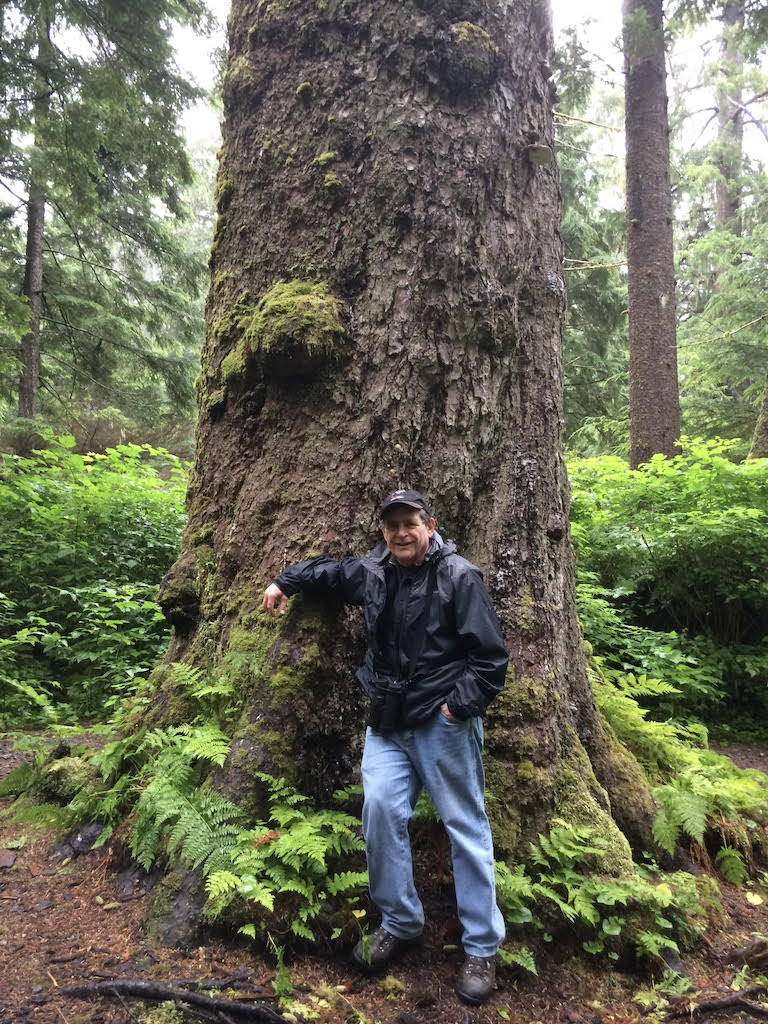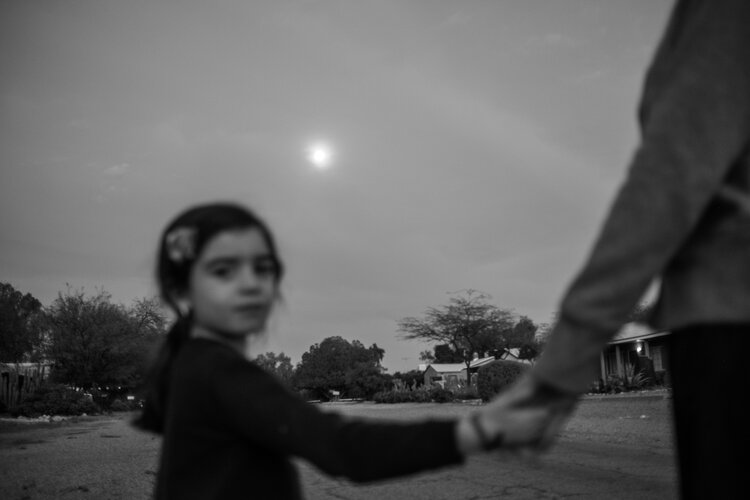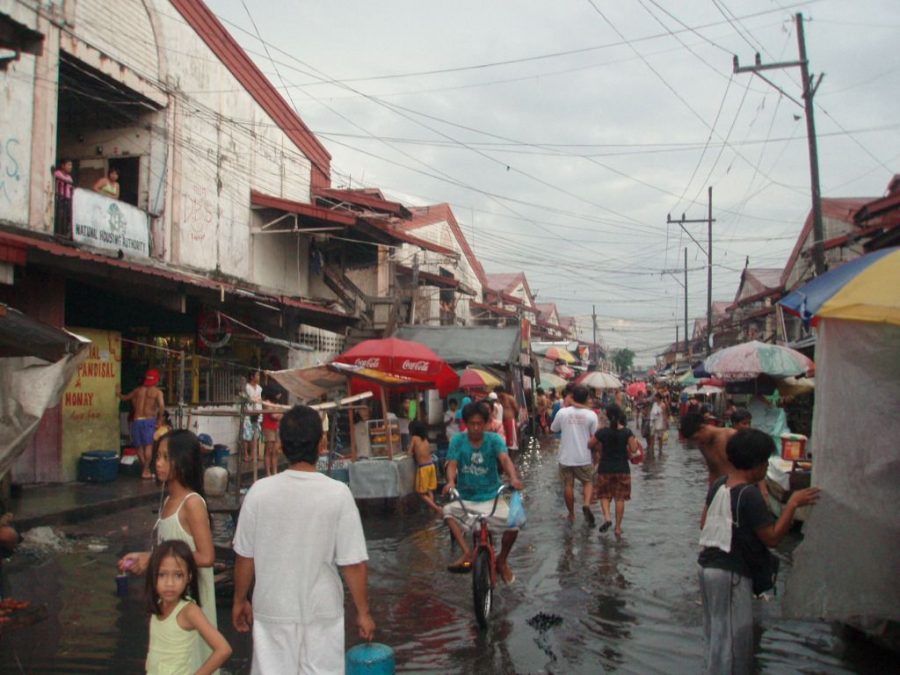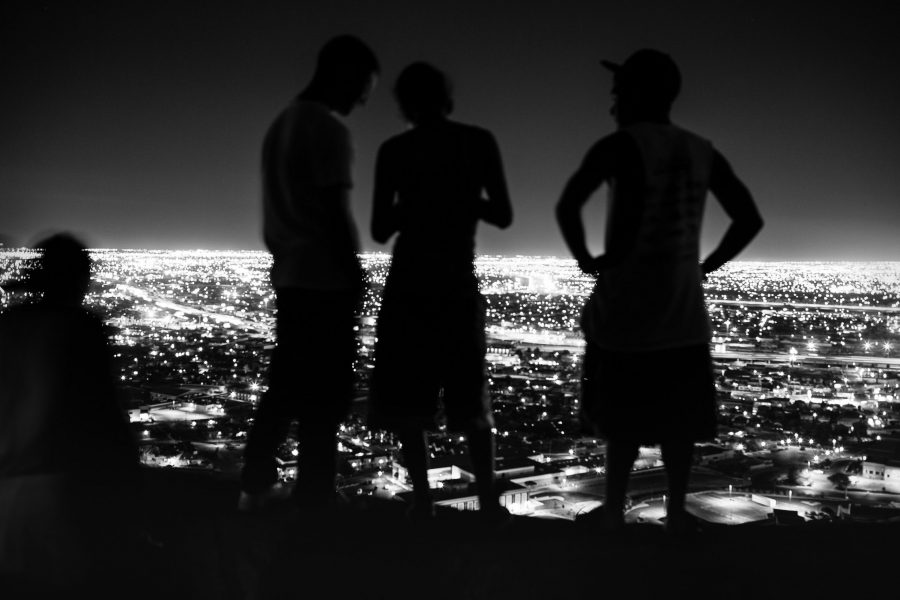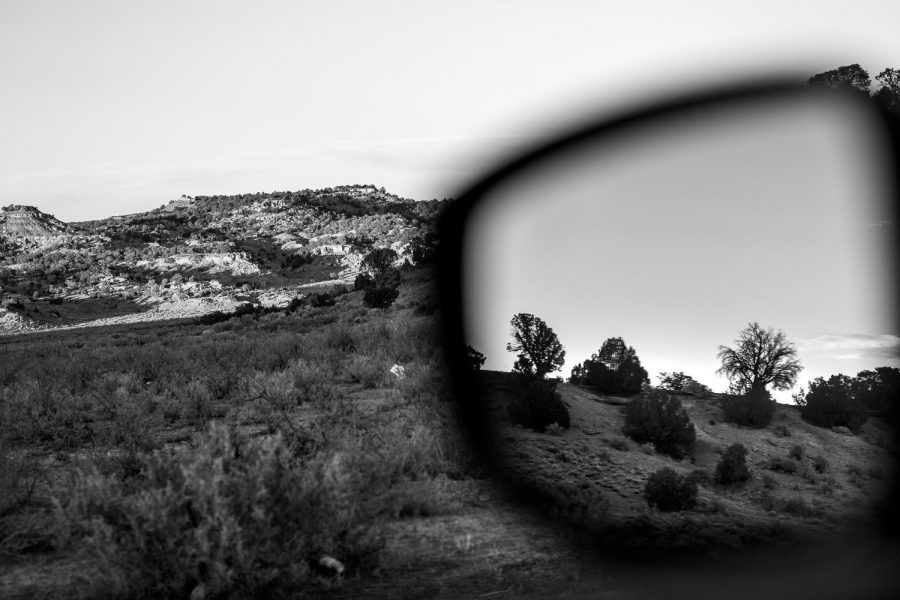
In an essay in Emergence Magazine, Diné (Navajo) poet Jake Skeets explores how time and land hold “fields” of memory that can unfold through language and storytelling. The piece is illustrated by photos and photo collages by Homelands’ Bear Guerra.
Jake Skeets is Black Streak Wood, born for Water’s Edge. He is Diné from Vanderwagen, New Mexico. He is the author of the poetry collection Eyes Bottle Dark with a Mouthful of Flowers, winner of the National Poetry Series and the American Book Award.
Bear’s work explores the impacts of globalization, development, late-stage capitalism, and the contemporary human condition. He is also the photo editor for High Country News. Bear grew up in San Antonio, Texas, and now lives in Tucson, Arizona.


